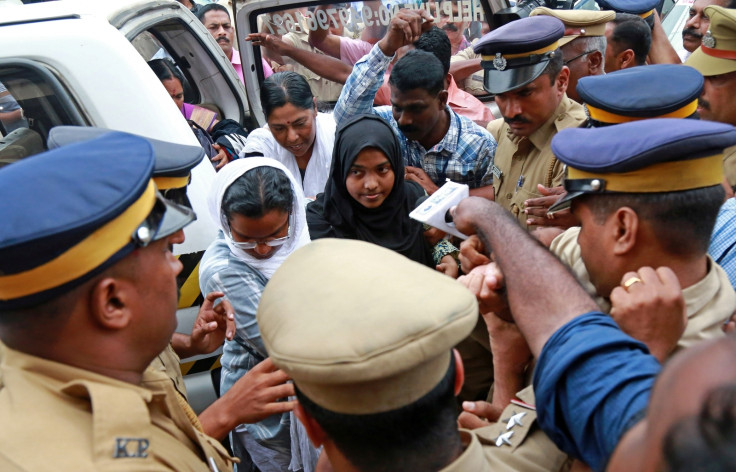India 'love-jihad': Top court frees Hindu woman who converted to Islam from parental custody
The woman, Hadiya, had been living under the guardianship of her parents following a lower court's order.

After her case took several twists and turns, Hadiya, the Indian woman at the centre of a high-profile faith conversion controversy, has been freed from parental custody by India's Supreme Court.
The top court also asked the woman to complete her homeopathy studies at Sivaraj Medical College in Salem city, in the southern Indian state of Tamil Nadu. She had discontinued her studies after the controversy broke.
The 25-year-old woman, who changed her name from Akhila to Hadiya after her conversion to Islam, had been living under the guardianship of her parents following a high court order earlier in the year.
Her story had attracted much national and international attention when her father approached the courts alleging that she had been "forcibly converted". Even as the case was being heard in a court in the state of Kerala, Hadiya married Shafin Jahan, who she met on a Muslim matrimonial site.
This prompted her father K M Ashokan to approach the courts a second time. He alleged that her conversion and marriage were part of a plan by radical groups to indoctrinate vulnerable girls and take them to Syria to join the Islamic State (Isis).
For long, right-wing Hindu groups in the country have alleged an Islamist conspiracy they term "love jihad" to convert girls to Islam by professing love and promising marriage.
In May, the Kerala court nullified Hadiya's marriage to Jahan. Observing that she was a "weak and vulnerable girl capable of being exploited", it granted Ashokan her custody. Parental authority was invoked even though Hadiya was an adult as there was a possibility she had been radicalised.
In August, the Supreme Court had ordered the country's National Investigation Agency (NIA) that combats terror to probe allegations that a large number of Hindu girls were being converted to Islam in Kerala. The agency had earlier claimed that there appeared to be a "well-oiled mechanism" to radicalise and convert women to Islam and that it was aware of 89 similar cases from the state.
Meanwhile, Jahan challenged the Kerala court's nullification of his marriage in the Supreme Court. He also sought to recall the NIA investigation into his wife's conversion and marriage. The Supreme Court had directed Ashokan to present his daughter before the court on 27 November (Monday) to hear her views on the matter.
On Monday, Hadiya told the court that she wanted "freedom" to live with her husband and practise Islam, and asked that her husband be her guardian. "A husband cannot be a guardian of his wife. Wife is not a chattel. She has her own identity in life and society. Even I am not guardian of my wife," Justice Chandrachud observed.
While directing the woman to continue her studies, the court fixed the next hearing on Jahan's plea for annulling his marriage to Hadiya for January 2018.





















